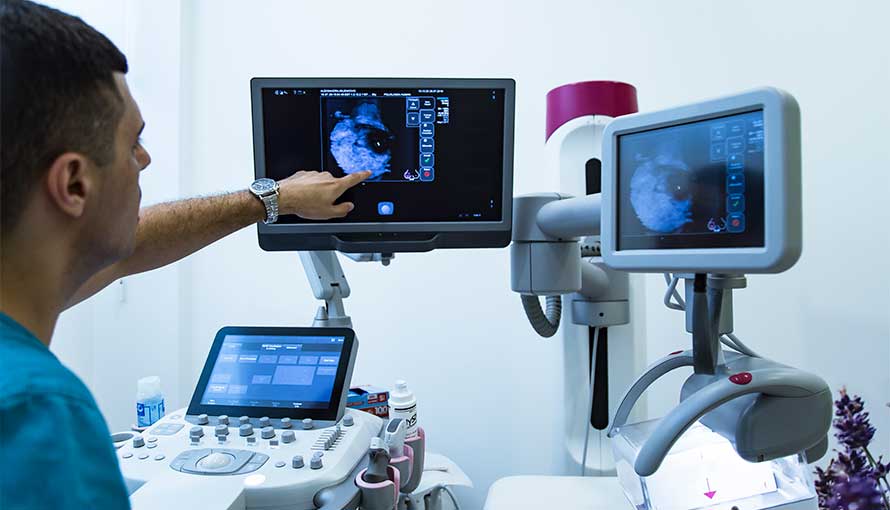Inflammatory Breast Cancer (IBC) Causes and Risk Factors

A rare and aggressive cancer, IBC usually develops rapidly, often within a few weeks or months. Unlike most other types of breast cancer, it does not cause a lump that can be felt in the breast or seen in mammography images. Instead, it causes the breast to become red, swollen and tender as cancerous cells build up and block the lymph vessels that normally allow fluid to drain from the breast.
IBC is relatively uncommon, accounting for 1-5% of all breast cancer diagnoses.
What causes inflammatory breast cancer?
Despite its name, IBC is not caused by inflammation. Instead, the term “inflammatory” refers to the appearance of the affected breast. The symptoms of inflammatory breast cancer often mimic those of an infection, injury or irritation that leads to increased blood flow and the buildup of white blood cells (inflammation) in the breast.
Although the precise causes of IBC are unclear, scientists have determined that the cancer begins when healthy cells in a milk duct undergo harmful changes that lead to uncontrolled cell division. The resulting accumulation of abnormal cells can clog lymph vessels in the breast skin and inhibit lymphatic drainage, allowing fluid to build up in the breast. This can lead to rapid-onset redness, swelling and tenderness.
What are the risk factors for inflammatory breast cancer?
Known risk factors for IBC include:
- Gender – Inflammatory breast cancer primarily affects women.
- Advanced age – The average age at the time of diagnosis is 52.
- Body weight – Obesity and excess body weight are risk factors for many types of cancer, including IBC.
- Genetics – While specific genetic mutations have not been conclusively linked to IBC, a family history of breast cancer may increase the risk.
Can inflammatory breast cancer be prevented?
Preventing IBC is challenging for several reasons. For instance, there is no specific screening test for this type of breast cancer, its causes are not well understood and most risk factors cannot be controlled. However, certain lifestyle practices can lead to better overall health and reduce the risk of cancer in general. These include:
- Maintaining a healthy body weight
- Consuming a nutritious diet
- Exercising regularly
- Avoiding tobacco use
- Limiting alcohol consumption
 Best Mammogram Center
Best Mammogram Center
Voted "Best Mammogram Center" in the Tampa Bay Times Best of the Best People's Choice Awards.
Benefit from world-class care at Moffitt Cancer Center
The scientists and clinicians at Moffitt are working tirelessly to develop new screening methods and treatment techniques for IBC. In recognition of our robust portfolio of clinical trials and groundbreaking research achievements, the National Cancer Institute has designated Moffitt a Comprehensive Cancer Center.
If you would like to learn more about inflammatory breast cancer causes and risk factors, you can request an appointment with a specialist in Moffitt’s renowned Don & Erica Wallace Comprehensive Breast Program by calling 1-888-663-3488 or submitting a new patient registration form online. We do not require referrals.
Diagnosis
